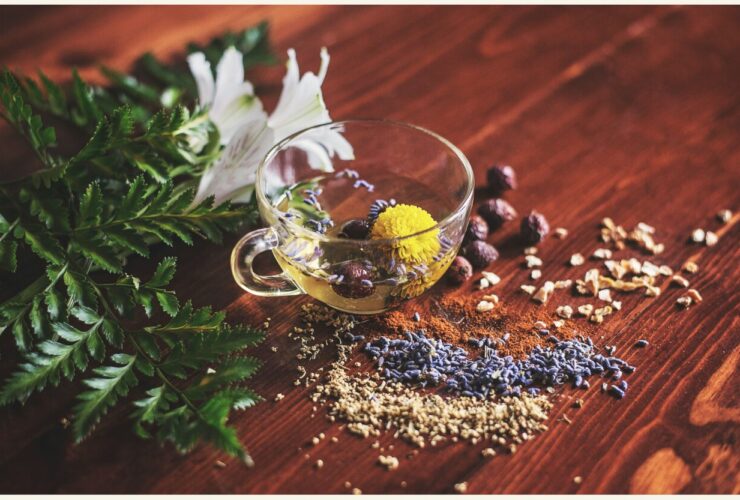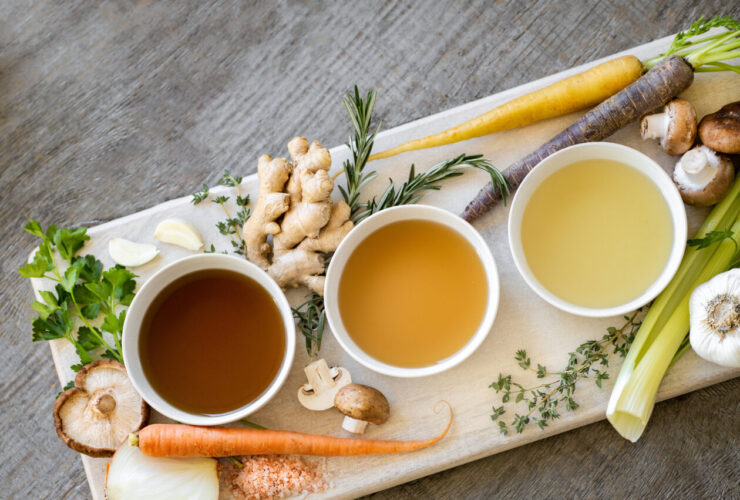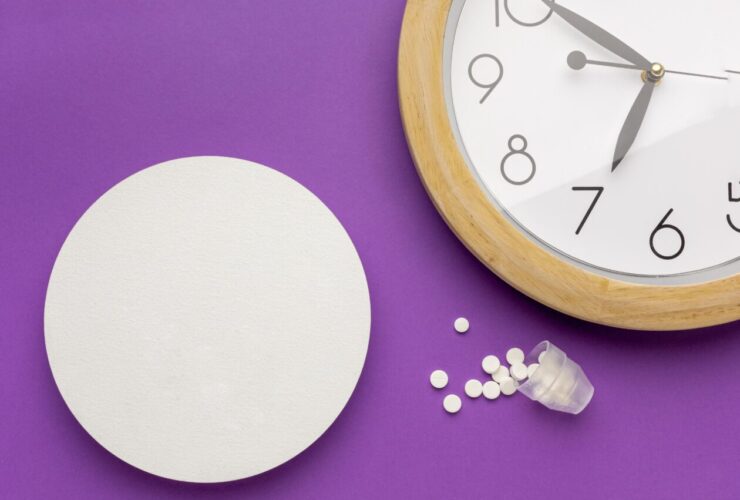Introduction
In recent years, intermittent fasting has been increasingly popular as a dietary strategy for maintaining metabolic health, controlling weight, and improving general well-being. This approach alternates between eating and fasting intervals, with different fasting protocols based on personal tastes and objectives. Knowing the subtleties of intermittent fasting is becoming increasingly important as more individuals accept it as a viable lifestyle option.
The choice of beverages to consume during fasting periods is one facet of intermittent fasting that is frequently disregarded. Although eating is usually the main focus, selecting what to drink is crucial to achieving fasting objectives and optimizing possible advantages. While staying hydrated is vital for general health and well-being, some drinks might affect the body’s ability to fast, hunger levels, and metabolism. As a result, making thoughtful beverage selections can improve the fasting experience and help achieve the desired results.
Understanding the importance of choosing your beverages wisely when on an intermittent fast emphasizes the need to make well-informed decisions and develop a strategic plan. People can make deliberate decisions supporting their fasting and health aims by knowing how various beverages impact the body during fasting. The numerous beverage options appropriate for intermittent fasting will be discussed in the following sections, along with their possible effects on metabolism, controlling hunger, and the success of the fast.
Understanding Intermittent Fasting
A dietary pattern known as intermittent fasting (IF) alternates between periods of eating and fasting. Its purported health benefits—such as weight loss, enhanced metabolic health, and longer lifespan—have made it increasingly popular in recent years. The most popular forms of intermittent fasting are time-restricted eating, fasting on alternate days, and periodic fasting. The length of the fast and the periods for eating are determined by each technique, giving people the freedom to select a fasting schedule that works for their objectives and way of life.
Restricting caloric intake during fasting periods enables the body to enter a fasting state and use stored energy reserves as fuel. This is the fundamental idea behind intermittent fasting. Although some people choose to fast for extended periods, most people only fast for 12 to 24 hours at a time. To preserve the metabolic advantages of fasting, it is imperative to refrain from taking any calories during the fasting period, especially those found in beverages.
Drink selection is very important when doing intermittent fasting because some liquids affect metabolism, hunger, and the body’s state of fasting. Due to its low-calorie content and hydrating qualities, water is recommended during fasting periods; however, other drinks such as sparkling water, black coffee, and tea are also frequently taken. However, since they can interfere with the fasting state by inducing an insulin response, it’s crucial to refrain from adding sugar, milk, or cream to these drinks.
To maximize the advantages of intermittent fasting, one must comprehend the notion of fasting windows. Eating windows are the times during which food and drink can be freely eaten, whereas fasting windows are the periods during which calorie consumption is restricted. People can maximize the benefits of intermittent fasting and reach their health and wellness objectives by following a regular fasting schedule and selecting beverages carefully.
To sum up, intermittent fasting is a dietary strategy alternating between eating and fasting to support several health advantages. Selecting the right beverages during fasting periods is essential to preserving the fasting state and maximizing the fasting’s metabolic effects. Through comprehension of the fundamentals of intermittent fasting and wise choices regarding beverage intake, people can fully utilize this nutritional approach to enhance their general health.
Beverage Choices for Intermittent Fasting

Water: The Ultimate Hydration
Water is the best beverage option for several reasons when on an intermittent fast:
- It won’t interfere with fasting since it has no calories.
- Being well-hydrated is essential for general health and well-being, particularly when fasting, because the body may need more water to compensate for the lack of meals. Water consumption aids digestion, prevents dehydration, and encourages detoxification by removing toxins.
- Maintaining hydration helps ease the process of adhering to fasting protocols by promoting satiety and lowering sensations of hunger.
Tea and Black Coffee: Low-Calorie Alternatives
Because they are low in calories and may have health advantages, black coffee, and tea are popular for intermittent fasting people. When drank without added sugar, milk, or cream, both beverages have very few calories, which makes them good choices during fasting times. Tea, in particular, has a lot of antioxidants and might be anti-inflammatory, while black coffee gives you a little caffeine kick without breaking your fast. Adding tea or black coffee to your fasting regimen can help reduce cravings, improve concentration, and promote fat-burning while fasting.
Coffee with MCT or Coconut Oil: Boosting Ketosis
By adding medium-chain triglycerides (MCT) or coconut oil to coffee, people who follow ketogenic intermittent fasting regimens can get a source of beneficial fats that boost ketosis and energy levels. The body quickly absorbs MCT oil, made from coconut oil, and transforms it into ketones, which can be used as an alternate fuel source when fasting. People can increase fat burning for energy, reduce appetite, and extend fasting by drinking coffee with MCT or coconut oil. Modifying the amount of oil added is crucial to prevent consuming too many calories and causing discomfort in the digestive tract.
Sparkling and Seltzer Waters: Refreshing Zero-Calorie Options
Without consuming extra calories or interrupting the fast, sparkling seltzer waters provide a delightful substitute for regular water when engaging in intermittent fasting. These tasty fizzy drinks help you fulfill your carbonated drink desires without sacrificing your fasting objectives. They are available in a range of flavors. However, it’s important to select sparkling waters free of artificial sweeteners, flavorings, or added sugars because these ingredients can cause an insulin reaction and negate the metabolic advantages of fasting. Choosing seltzer or plain sparkling water guarantees that people can have a carbonated drink without deviating from their fasting schedule.
Water with Lemon: Adding Flavor Without Calories
Another well-liked beverage option for intermittent fasters is water flavored with lemon slices, which adds flavor without increasing the calorie count. In addition to being hydrating and invigorating, lemon water may strengthen the immune system and promote digestion. Lemon juice’s acidity may also aid in boosting the body’s detoxification processes and gastric juice production. Without sacrificing their fasting objectives, people can improve hydration, aid in digestion, and expand their beverage selections by including water with lemon in their fasting regimen.
In conclusion, selecting the appropriate drinks for intermittent fasting can improve metabolic health, increase hydration, and facilitate faster fasting goals. Water is still the best option for remaining hydrated and cutting back on unneeded calories during fasting. Low-calorie substitutes like tea, black coffee, and sparkling water can help sate fullness and reduce cravings. Coffee made with MCT or coconut oil can help promote ketosis and increase energy levels for people who are following ketogenic fasting protocols. Ultimately, the secret to optimizing the advantages of intermittent fasting and remaining hydrated and energetic during fasting is choosing beverages that complement personal preferences and fasting objectives.
What to Avoid During Intermittent Fasting
Soda: A Sugary Trap
Because soda is heavy in sugar and calories, it presents a serious problem for people who are intermittent fasting. Because soda contains sugar, it can raise insulin levels, which can cause a crash that can worsen hunger pangs and interfere with fasting. Furthermore, soda’s empty calories have little to no nutritious benefit and might undermine diet plans. Soda consumption must be avoided during fasting to maximize the metabolic benefits of fasting and maintain stable blood sugar levels.
Alcohol: Fasting’s Foe
Drinking alcohol while on an intermittent fast might be harmful to your fasting objectives and metabolic health. When fasting, alcohol is metabolized differently from other macronutrients and is broken down more quickly than fat is burned. This alteration in metabolism slows down fat loss and makes it more difficult for the body to go into and stay fast. Alcohol can also cause the body to become dehydrated and increase cravings for unhealthy meals, which makes it more difficult to follow fasting guidelines. Limiting or refraining from alcohol use during fasting periods is crucial to maximizing metabolic health and accomplishing fasting-related goals.
Smoothies: Stealthy Calorie Bombs
Smoothies are generally considered healthful, but store-bought variations can be so high in calories and sugar that they ruin fasting attempts. Fruit juices, syrups, and added sugars are common ingredients in store-bought smoothies. These ingredients can quickly pile up in calories and interfere with the fasting condition. Because they increase insulin levels and encourage fat storage, even homemade smoothies with high-sugar fruits and sweetened yogurt might undermine fasting objectives. During fasting, choosing whole foods or low-sugar substitutes over smoothies might help minimize the intake of extra calories and promote metabolic health.
Bone and Vegetable Broths: Caloric Culprits
Despite their nutritional value, bone and vegetable broth might not be appropriate to consume during intermittent fasting because of their high-calorie content. Protein and fat in both varieties of broth provide calories that can cause an insulin reaction and prevent the body from going into a fasting condition. Furthermore, broth’s amino acids can aid digestion and lessen fasting’s effects on autophagy and cellular repair. Because of its high nutrient content, broth may be advantageous when consumed outside of fasting windows, but to optimize the benefits of fasting, it is preferable to avoid doing so.
Coffee with Cream, Milk, or Butter: Breaking the Fast
During fasting periods, it is typical to make the error of adding high-calorie items like cream, milk, or butter to coffee, which can undermine the purpose of fasting. These additions include calories and macronutrients that can increase insulin secretion and stop the processes that burn fat that are started during fasting. Even though these additives in modest amounts might not break the fast, they undermine their beneficial effects on metabolism. To adhere to your fasting goals, choose black coffee or coffee with very little added, like a dash of unsweetened almond milk or a pinch of cinnamon.
FAQs About Intermittent Fasting
Q: Can you still drink fluids while intermittent fasting?
A: Yes, staying hydrated is essential during intermittent fasting. Water, herbal tea, and black coffee are typically allowed during fasting periods and can help curb hunger and maintain hydration levels.
Q: Can I drink Coke Zero while fasting?
A: While Coke Zero is technically calorie-free and may not spike insulin levels, its artificial sweeteners could still trigger cravings and disrupt the fasting state for some individuals. Opting for zero-calorie, natural beverages like water or unsweetened tea during fasting is best.
Q: What is allowed during intermittent fasting?
A: Allowed beverages during intermittent fasting include water, black coffee, herbal tea, and zero-calorie drinks. Some practitioners also allow small amounts of non-caloric sweeteners, but it’s essential to prioritize hydration and avoid anything that could spike insulin levels.
Q: Can we drink lemon water during intermittent fasting?
A: Yes, lemon water is generally considered acceptable during intermittent fasting. It’s low in calories and can add flavor to water without significantly impacting insulin levels. However, it’s best to consume it in moderation and avoid adding sweeteners.
Q: Can you drink anything during a 16-hour fast?
A: While water, herbal tea, and black coffee are typically allowed during a 16-hour fasting period, it’s essential to avoid consuming anything that contains calories or could break the fast, such as sugary beverages or milk.
Q: Why did I stop intermittent fasting?
A: Individuals may stop intermittent fasting for various reasons, including difficulty adhering to the eating window, feeling overly restricted, or experiencing negative effects on energy levels or mood. Listening to your body and finding an eating pattern that works best for your lifestyle and health is essential.
Q: Does coffee with milk break a fast?
A: Yes, adding milk to coffee can break a fast due to its calorie content and potential to stimulate insulin production. Sticking to black coffee or coffee with minimal additions is best to maintain the fasting state.
Q: Can I eat whatever I want while intermittent fasting and still lose weight?
A: While intermittent fasting can be an effective weight loss tool for some individuals, eating unrestricted amounts of unhealthy foods is not a license. To achieve weight loss goals, it’s essential to focus on nutrient-dense, whole foods during eating windows and practice moderation.
Q: Can you drink zero-calorie drinks while intermittent fasting?
A: Yes, zero-calorie drinks like water, herbal tea, and black coffee are generally acceptable during intermittent fasting. However, it’s crucial to avoid beverages with artificial sweeteners or additives that could disrupt the fasting state.
Q: What not to do during intermittent fasting?
A: During intermittent fasting, avoiding consuming anything with calories or additives that could break the fast is essential. Additionally, it’s crucial to prioritize hydration, maintain a balanced diet during eating windows, and listen to your body’s hunger cues.
Q: What happens if you accidentally eat while intermittent fasting?
A: Accidentally consuming food during intermittent fasting can disrupt the fasting state and halt the metabolic benefits of fasting. However, one isolated incident is unlikely to undo all progress, and individuals can resume their fasting protocol after the unintended consumption.
Q: Does milk in tea break a fast?
A: Yes, adding milk to tea can break a fast due to its calorie content and potential to stimulate insulin secretion. It’s best to consume plain, unsweetened tea or herbal infusions during fasting periods to maintain the fasting state.
Q: What can you drink while fasting 16/8?
A: While fasting during a 16/8 protocol, it’s best to stick to zero-calorie beverages like water, herbal tea, and black coffee. Avoiding anything that contains calories or sweeteners can help preserve the metabolic benefits of fasting.
Q: Can I drink vegetable juice during intermittent fasting?
A: While vegetable juice can be nutrient-dense, it’s typically not recommended during intermittent fasting due to its caloric content. Consuming vegetable juice could break the fast and disrupt the fasting state, so it’s best to stick to zero-calorie options.
Q: What can you drink while fasting for weight loss?
A: For weight loss during fasting, focus on hydrating with water, herbal tea, and black coffee. These zero-calorie beverages can help curb hunger and support fat-burning while maintaining fasting.
Q: Can you drink water during intermittent fasting 16/8?
A: Drinking water is essential during intermittent fasting, including during a 16/8 protocol. Staying hydrated can help reduce hunger, support metabolism, and promote overall health during fasting periods.
Q: Can I drink milk tea during intermittent fasting?
A: Consuming milk tea during intermittent fasting can break the fast due to the calorie content in milk. Avoid adding milk or other calorie-containing ingredients to tea to maintain the fasting state.
Conclusion
Ultimately, the path of intermittent fasting frequently centers on making informed decisions about your consumption of alcohol. Throughout this exploration, we’ve highlighted several appropriate beverage options for intermittent fasting, each with certain advantages and things to remember.
First and foremost, water wins out because it provides hydration without adding calories or breaking the fast. It’s the perfect option for anyone looking to get the most out of their fasting experience because of its simplicity and purity.
Black coffee and herbal tea are well-liked substitutes that offer flavor and a tiny energy boost without consuming many calories. For many, these drinks might improve their fasting experience and help ward off hunger symptoms.
Options like sparkling water or water with lemon can give a delightful twist to hydration without sacrificing fasting objectives for those looking for more variation. These options are minimal in calories and free of any substances that could interfere with fasting, all while providing slight flavor boosts.
But it’s important to remember that the ideal beverage for intermittent fasting fits your tastes and objectives. What suits one person’s fasting regimen may not be suitable for another, so don’t be hesitant to try different things until you find what works best.
The main lesson is to focus on consuming low-calorie, non-nutritive drinks to help you achieve your fasting objectives and keep you hydrated and alert. You may maximize your intermittent fasting experience and get closer to reaching your fitness and health goals by choosing your drinks carefully. I wish you well on your fasting adventure and that you have plenty of support from your drink selections!
Reference
Ye, F., Zhang, X., Lin, Z., & Tang, L. (2022). Is Intermittent Fasting Better Than Continuous Energy Restriction for Adults with Overweight and Obesity? Diabetes, Metabolic Syndrome and Obesity: Targets and Therapy, 15, 2813-2826. https://doi.org/10.2147/DMSO.S376409
Gudden, J., Vasquez, A. A., & Bloemendaal, M. (2021). The Effects of Intermittent Fasting on Brain and Cognitive Function. Nutrients, 13(9). https://doi.org/10.3390/nu13093166
Taylor, Kory, and Elizabeth B Jones. 2022. “Adult Dehydration.” Nih.gov. StatPearls Publishing. October 3, 2022. https://www.ncbi.nlm.nih.gov/books/NBK555956/.
Ganson, Kyle T, Kelly Cuccolo, Laura Hallward, and Jason M Nagata. 2022. “Intermittent Fasting: Describing Engagement and Associations with Eating Disorder Behaviors and Psychopathology among Canadian Adolescents and Young Adults.” Eating Behaviors 47 (December): 101681–81. https://doi.org/10.1016/j.eatbeh.2022.101681.
Özge Mengi Çelik, Eda Köksal, and Müjde Aktürk. 2023. “Time-Restricted Eating (16/8) and Energy-Restricted Diet: Effects on Diet Quality, Body Composition and Biochemical Parameters in Healthy Overweight Females.” BMC Nutrition 9 (1). https://doi.org/10.1186/s40795-023-00753-6.
Marinac, Catherine R, Sandahl H Nelson, Caitlin I Breen, Sheri J Hartman, Loki Natarajan, John P Pierce, Shirley W Flatt, Dorothy D Sears, and Ruth E Patterson. 2016. “Prolonged Nightly Fasting and Breast Cancer Prognosis.” JAMA Oncology 2 (8): 1049–49. https://doi.org/10.1001/jamaoncol.2016.0164.
Marten, Berit, Maria Pfeuffer, and Jürgen Schrezenmeir. 2006. “Medium-Chain Triglycerides.” International Dairy Journal 16 (11): 1374–82. https://doi.org/10.1016/j.idairyj.2006.06.015.
Was this helpful?

Joseph Emb, RDN
Founder of StyleVitally.com | Registered Dietitian & Wellness Advocate
What I Cover:
I’m passionate about connecting nutrition science and everyday wellness to help people live healthier, more vibrant lives. I write about evidence-based nutrition, mindful eating, sustainable lifestyles, and holistic well-being at StyleVitally.com.
My Background:
The University of Texas in Austin, where I earned my Dietetics diploma, laid the groundwork for my nutrition and health career. My training and hands-on experience taught me the science and art of using nutrition to enhance health and well-being.
Professional Journey:
I’m an RDN with lots of experience. I’ve helped people seeking tailored nutritional recommendations in clinical settings and community outreach programs. My constant learning and professional development ensure that my recommendations are always based on the latest evidence.
Ethical Commitment:
My practice prioritizes integrity. My content is transparent and objective, following the most significant ethical standards. I can give my audience unbiased advice because I’m not affiliated with food businesses or industry associations. I want to help people make informed health decisions that match their values and ambitions.
Join Me on the Wellness Journey:
Join me on the path to vitality and well-being, whether facing nutritional issues, seeking sustainable lifestyle changes, or simply wanting a better, happier you. We’ll discover how diet, mindfulness, and holistic well-being can maximize your potential.









